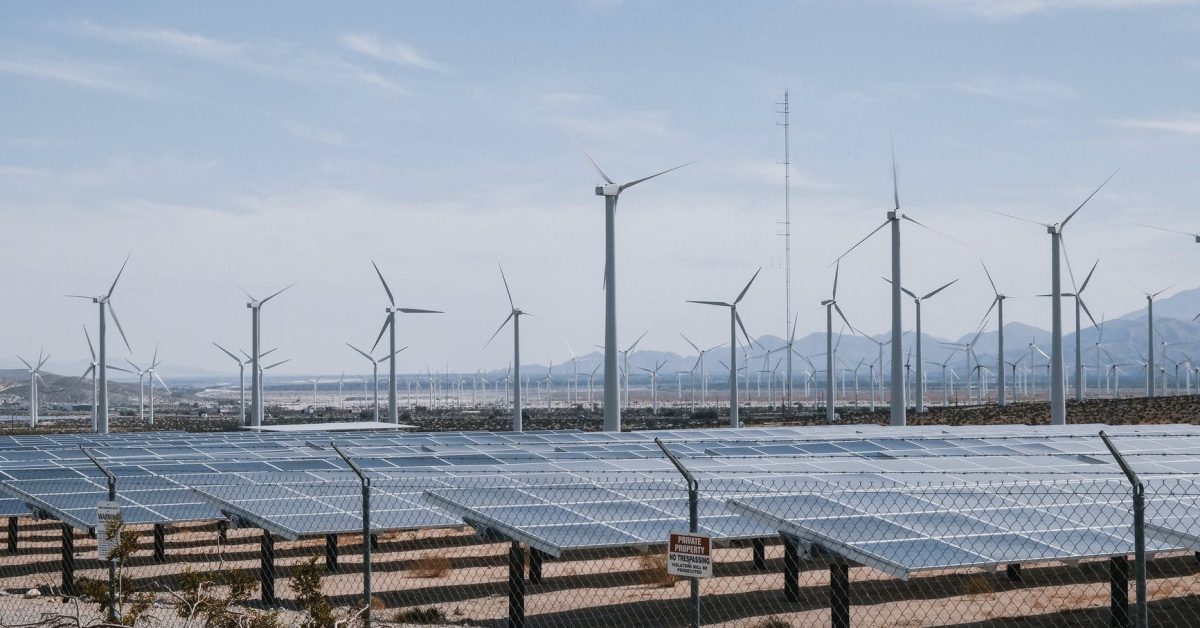Clean energy accounted for more than two-thirds of the new US electrical generating capacity added during the first six months of 2022, according to data recently released by the Federal Energy Regulatory Commission (FERC).
Wind (5,722 megawatts) and solar (3,895 MW) provided 67.01% of the 14,352 MW in utility-scale (that is, greater than 1 MW) capacity that came online during the first half of 2022.
Additional capacity was provided by geothermal (26 MW), hydropower (7 MW), and biomass (2 MW). The balance came from natural gas (4,695 MW) and oil (5 MW). No new capacity was reported for 2022 from either nuclear power or coal.
This brings clean energy’s share of total US available installed generating capacity up to 26.74%. To put that in perspective, five years ago, clean energy’s share was 19.7%. Ten years ago, it was 14.76%.
FERC reports that there may be as much as 192,507 MW of new solar capacity on the way, with 66,315 MW classified as “high-probability” additions and no offsetting “retirements.”
The “high-probability” additions alone would nearly double utility-scale solar’s current installed capacity of 74,530 MW, while successful completion of all expected projects would nearly quadruple it.
Notably, FERC’s forecast predates President Joe Biden signing into law the Inflation Reduction Act, and that will likely ramp up solar growth even more.
In addition, new wind capacity by June 2025 could total 70,393 MW, with 17,383 MW being “high probability” and only 158 MW of retirements expected. Thus, installed wind capacity could grow by at least 12%.
“High-probability” generation capacity additions for utility-scale solar and wind combined, minus anticipated retirements, reflect a projected net increase of 83,540 MW over the next three years, or over 2,300 MW per month. That figure does not include new distributed, small-scale solar capacity or additions by hydropower, geothermal, and biomass.
SUN DAY Campaign’s executive director Ken Bossong, who reviewed and reported on the data, said in an emailed statement:
With each new monthly Infrastructure report from FERC, the prospects for renewable sources, especially solar and wind, brighten while those for natural gas, coal, and nuclear power continue to slide.
By the end of this decade, the mix of renewable energy sources should constitute the largest share of the nation’s electrical generating capacity.
Read more: Here’s how the US climate act will lower household energy bills
Photo by Kindel Media on Pexels.com
UnderstandSolar is a free service that links you to top-rated solar installers in your region for personalized solar estimates. Tesla now offers price matching, so it’s important to shop for the best quotes. Click here to learn more and get your quotes. — *ad.
Read the full article here




